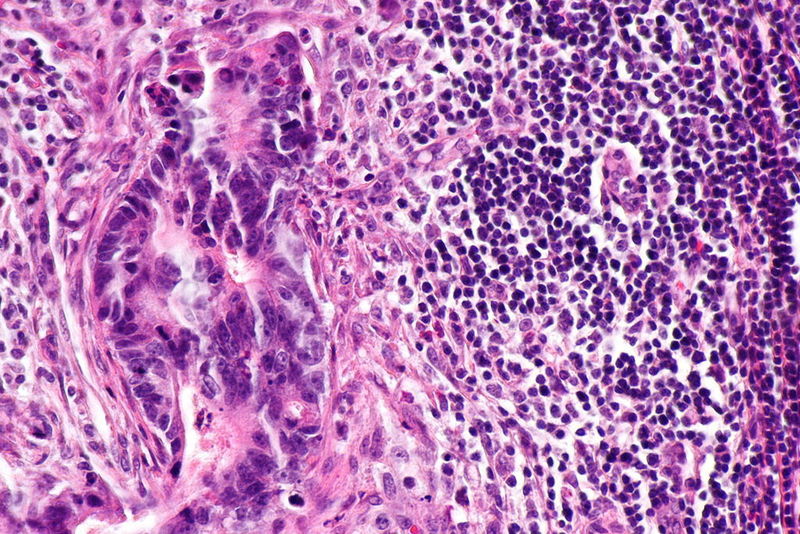
Array BioPharma has reported positive data from the interim analysis of the Phase III BEACON CRC clinical study being conducted to assess Braftovi (encorafenib), Mektovi (binimetinib) and Erbitux (cetuximab) in metastatic colorectal cancer (mCRC).
The trial involved BRAFV600E-mutant mCRC patients after one or two previous lines of therapy.

Discover B2B Marketing That Performs
Combine business intelligence and editorial excellence to reach engaged professionals across 36 leading media platforms.
Braftovi is a BRAF inhibitor, while Mektovi is an anti-EGFR antibody. The trial saw the triple combination therapy compared to cetuximab plus irinotecan-containing regimens (control).
Data showed that both primary endpoints of the trial have been met, demonstrating statistically significant improvement in confirmed objective response rate (ORR) and overall survival (OS).
The ORR analysis involved the initial 331 randomised patients. The median ORR was observed to be 26.1%, compared to 1.9% in the control arm.
Interim analysis of OS was conducted in all 665 patients, and median OS was 9 months and 5.4 months in the study regimen and control regimen groups, respectively.

US Tariffs are shifting - will you react or anticipate?
Don’t let policy changes catch you off guard. Stay proactive with real-time data and expert analysis.
By GlobalDataSecondary endpoint analysis found that subjects on Braftovi and cetuximab combination had a statistically significant improvement of 20.4% in ORR and median OS of 8.4 months.
The figures were 1.9% ORR and 5.4 months median OS in the control arm.
Array BioPharma said that a descriptive comparison of the triple therapy to the double combination showed a positive trend across endpoints, including ORR and OS.
Array BioPharma CEO Ron Squarer said: “We are pleased to announce positive results from the BEACON CRC trial, including that the Braftovi Triplet reduced the risk of death by 48% versus control.
“This has the potential to be the first chemotherapy-free, targeted regimen for mCRC patients, a population with a very high unmet need for effective treatments.”
Both the Braftovi triplet and doublet were generally well-tolerated without any unexpected toxicities. The safety profiles of these regimens were reported to be consistent with previous data of each regimen and with MEK, RAF and EGFR therapy effects.





